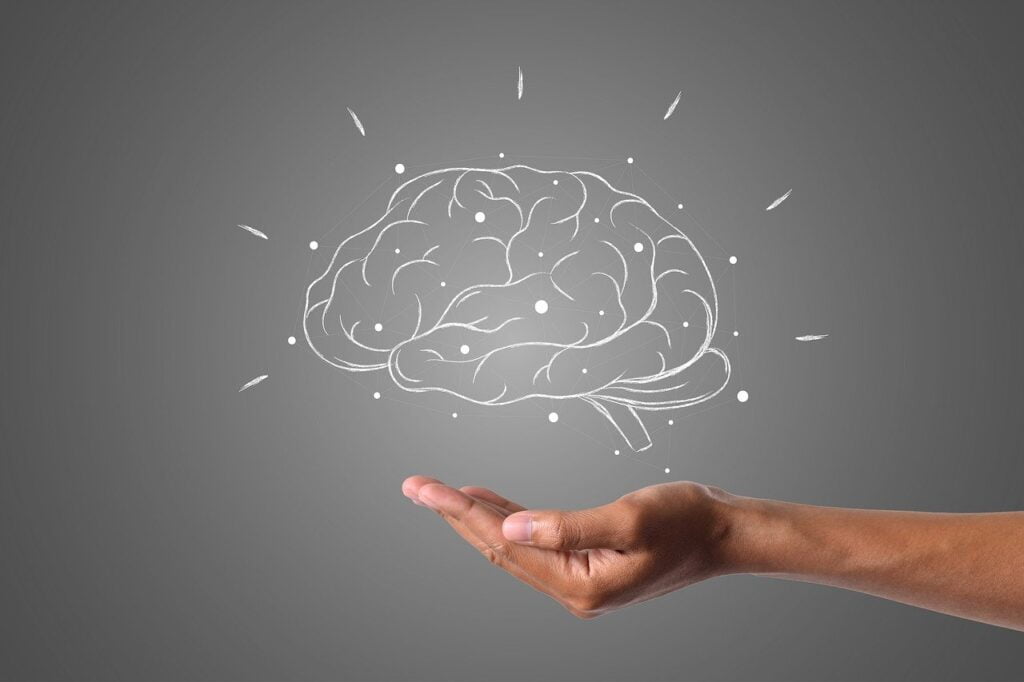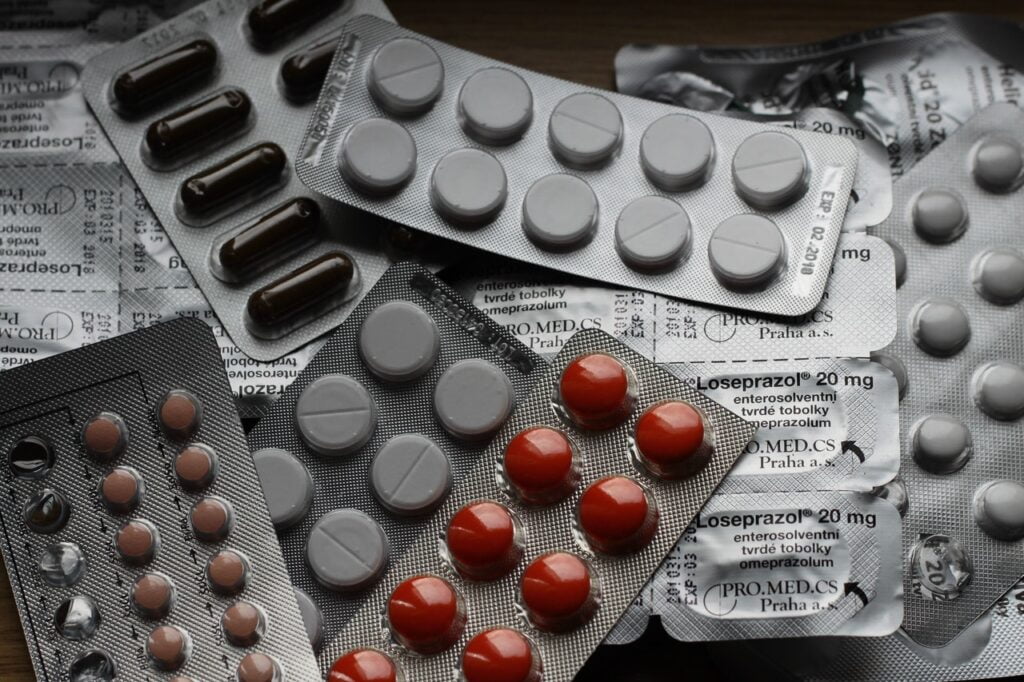- Home
- Addiction Treatment
- Residential Drug Treatment
Residential Drug Treatment
Addiction is a complex disease which has the capacity to ruin the lives of many and even bring lives to an abrupt end.
Some of the primary symptoms associated with addiction include:
- Anxiety
- Depression
- Insomnia
- Headaches
- Seizures
In certain cases, it can even lead to death if left untreated.
Not only is it limited to the subject who is addicted – the friends and families of those who are addicted must suffer the emotional trauma that is witnessing their loved one succumb to this disease.
How Does Addiction Work?

According to the brain disease model of addiction, addiction is a disease of chronic brain relapsing.
Rather than a series of poor lifestyle choices which many believe it to be, subjects experience a drastic alteration of the mesolimbic or reward pathways in their brains, making them incredibly dependent on their addictive substance.
There are three stages of addiction according to the model, and these are bingeing and intoxication, withdrawal symptoms and compulsion to consume the addictive substance once more.
While drug addiction is a dangerous cycle, it is something that residential drug treatment can help subjects overcome.
What is Residential Drug Treatment?

When patients undergo residential drug treatment, it means that they will stay at their designated rehab for a period of time.
They will stay overnight at an accommodation which has medically-supported facilities and medical professionals who will be there to care for patients day and night.
Patients at residential rehab facilities are inpatients.
At a residential drug treatment facility, patients can solely focus on their recovery.
They do not need to worry about external factors or any environmental factors which might act as relapse triggers.
It is an opportunity for them to invest their utmost attention towards getting better.
While different providers of residential drug treatments ultimately have the same objective of helping patients recover, they may use different methods.
Because of this, it is important that subjects understand what their residential drug treatment programme consists of before committing to that particular treatment.
At a residential drug treatment, a wide range of therapy options and counselling is available to maximise the patient’s responsiveness to recovery.
This will help them not only overcome addiction, but other issues in life.
How Can I Begin Recovery Through Residential Drug Treatment?

When subjects contact Rehab Recovery by dialling the number 0800 088 66 86, they will be greeted by a trained admissions officer from our team to accommodate them and conduct a health assessment.
While the health assessment may sound formal, it will be conducted in a relaxed manner, free of charge and with complete discretion.
The health assessment is simple and will not take much of the subject’s time.
The trained admissions officer will ask questions about their physical and mental health, their addiction history, and any personal requirements that they may have when entering residential drug treatment.
These preferences could vary from affordability, particular facilities, location preferences, and much more.
Remember, we are here to accommodate your needs, not vice versa.
Should subjects have any other conditions that need to be treated -for example, anxiety or depression– a dual diagnosis will be made.
A consultant psychiatrist will then evaluate the subject’s needs in order to create a personalised programme which will optimise their recovery.
What Are the Benefits of Residential Drug Treatment?

People often compare residential drug treatment and outpatient drug treatments
There are positives and drawbacks to both forms of treatment, however, ultimately it is the patient’s requirements and preferences which will determine which kind of treatment is more effective.
Outpatient Treatment
Outpatient drug treatment offers patients flexibility as they are able to return home each night while undergoing recovery.
This means that they can maintain employment and tend to any social or academic obligations that they may have.
However, this can also mean that outpatients are constantly exposed to social and environmental triggers which may lead to a relapse.
These concerns are eliminated for patients that undergo residential drug treatment.
Residential (Inpatient) Treatment

At a facility which offers residential drug treatment, inpatients will be relieved of any other responsibilities whilst they are recovering.
They will spend their time undergoing therapy and counselling at their designated rehab facility, giving them the chance to put 100% of their efforts into abstaining and maintaining sobriety.
The benefits that come with residential drug treatment are plentiful.
Inpatients will be provided accommodation, a medicated detox, medically supported facilities, pharmacological intervention and therapy, all in a supervised yet comfortable environment.
Medicated Detox

Medicated detox offers inpatients a chance to allow the addictive substance to withdraw from their system.
This will be done with the assistance of medication, which is known as pharmacological intervention.
This ensures that any withdrawal symptoms are minimised in terms of their severity potential.
Therapies And Treatments

Comprehensive therapy is also offered.
These evidence-based treatments come in a wide range of forms, such as:
- Cognitive Behavioural Therapy
- Dialectical Behavioural Therapy
- Motivational Interviewing
- Family Therapy
- Support Sessions
- Holistic Therapy
The combination of therapies ensures that the inpatient’s issues are thoroughly addressed.
Inpatients will also be taught about the intricacies of relapse prevention planning.
Not only does a residential drug treatment facility help them recover, but it provides them the tools and knowledge to stay in recovery.
How Long Does Residential Drug Treatment Last?

The required time spent at a residential rehab facility will vary from one patient to the next.
Typically, patients will spend around 28 days at their designated residential drug treatment facility.
This ensures that they can undergo a medicated detox, therapy and relapse prevention planning without rushing the process.
Sometimes, patients that are suffering from severe forms of addiction will be required to stay longer at their designated rehab facility.
This is to ensure that they are provided with enough time before they must maintain their recovery with more independence.
Who is Residential Drug Treatment For?

A residential drug treatment programme is optimal for those that suffer from a moderate or significant form of addiction.
If patients are suffering from a mild form of addiction, then it may be more convenient for them to undergo outpatient drug treatment.
However, patients that are suffering from moderate or severe forms of addiction will be required to undergo recovery as an inpatient.
This is because they are deemed to be ‘high risk’ and their potential of relapsing may be higher.
‘High risk’ patients are those that have previously tried to recover but failed, and also those that consume extremely high amounts of their addictive substances.
Patients that suffer from co-occurring disorders (e.g. depression, bipolar) and those that become violent or have a poor support network are also deemed to be high-risk patients.
How Do I Know If I Require Residential Drug Treatment?

It can be difficult to assess your own addiction without being biased or influenced by personality traits.
Some subjects may be stubborn or reluctant to admit the severity of their own drug addiction, whereas others may be paranoid and overestimate the severity of their own drug addiction.
Thankfully, there are evidence-based and validated screening methods used by clinicians to determine the severity of someone’s addiction.
Once this severity is understood, then they can be placed in a suitable recovery environment.
The ASAM Criteria

The ASAM criteria is a prominent example of a validated screening method and multidimensional assessment to understand the severity of someone’s addiction.
According to the criteria, there are six dimensions which are taken into account to determine addiction severity.
These six dimensions are:
- Withdrawal Potential: The potential in which patients will experience discomforting physical or psychological withdrawal symptoms.
- Biomedical Conditions: Physical health and mental wellbeing.
- Emotional, Behavioural Or Cognitive Conditions
- Readiness To Change: How willing or ready the subject is to undergo recovery
- Relapse Or Continued Use Potential: The potential in which patients will relapse
- Recovery And Living Environment: Analysing the social and environmental factors which may trigger relapses
Once these dimensions are taken into account and the addiction severity is understood, patients will be assigned a level.
Each level indicates a different form of treatment required.
The levels are:
- Level 1: Outpatient treatment
- Level 2: Intensive outpatient treatment
- Level 3: Inpatient treatment
- Level 4: Intensive inpatient treatment
Clinicians and patients will then understand what kind of treatment they require to overcome drug addiction.
Therefore, if patients are assigned level 3 or 4 according to the ASAM criteria, it is necessary for them to undergo drug treatment as an inpatient at a residential rehab.
Inpatient Treatment and Intensive Inpatient Treatment

While most inpatient drug treatment programmes will look similar, they may vary in their degrees of ‘intensity’.
This simply means that the levels of supervision may vary from one patient to another.
An inpatient undergoing residential drug treatment will receive 24-hour care with trained counsellors, undergo therapy, relapse prevention planning and other activities to ensure that they are not only progressing, but are happy.
Intensive inpatient programmes, however, may require more supervision such as 24 hour nursing care and constant support from medical professionals and counsellors.
This is for patients that suffer from co-occurring mental health problems or experience extremely discomforting withdrawal symptoms.
In-Depth Look at Drug Treatment at Residential Rehab

When undergoing residential drug treatment, inpatients will take part in a range of therapeutic activities and counselling sessions in order to obtain the tools and the knowledge required to recover from addiction.
However, these forms of therapy are also used to increase general well-being in other aspects of life.
Cognitive Behavioural Therapy

Cognitive Behavioural Therapy is a fundamental aspect of any credible residential drug treatment programme.
While Cognitive Behavioural Therapy is integral to overcoming addiction, it is not used for addiction alone.
It is used to help patients that suffer from addiction, trauma, cognitive distortions, anxiety, depression and more.
Cognitive Behavioural Therapy has an effective history of promoting a rational and logical analysis of thoughts.
While it is effective in treating patients overcoming addiction, it has benefits which transgress into all areas of life and can help people live a happier life.
Dialectical Behavioural Therapy

Similar to Cognitive Behavioural Therapy, Dialectical Behavioural Therapy aims to change the patient’s cognitive distortions and self-destructive habits.
This form of therapy, however, places more emphasis on controlling intense emotions and thoughts with the objective of helping patients become more emotionally stable.
Motivational Interviewing

Motivational Interviewing is a form of therapy which is based on the language of change.
A licensed counsellor will ask the patient a range of questions to help them manifest their own recovery.
It is believed that speaking about our intentions helps us to consolidate them.
Therefore, Motivational Interviewing is implemented to help patients reinforce and achieve their goals, with the intention to ‘strengthen personal motivation for and commitment to a specific goal’.
Support Sessions

Support sessions provide a platform for patients to share their experiences of addiction and recovery.
This allows people to unburden themselves of stress and tension caused by their addiction, and it also allows patients to be inspired by peers which can heavily reinforce recovery motivation.
Social reinforcement is incredibly effective when it comes to overcoming addiction.
By sharing experiences with others and also gaining insight into the experience of others, patients can resonate with each other.
Family Therapy

Family can play a monumental role in the journey of recovery.
A family can sometimes act as the patient’s first line of defence in their support network.
Therefore, it is imperative to include family therapy in order to strengthen the patient’s support network and maximise their chances of recovery.
Family Therapy can also help us break down the stigma surrounding addiction.
By educating the family in a communicative and non-confrontational way, they can gain insight into their loved one’s addiction and they can learn to identify potential relapse triggers.
Holistic Therapy

Holistic Therapy can appeal to anyone undergoing a residential drug treatment programme.
The uniqueness of Holistic Therapy is that it can come in almost any form.
Whether patients want to undergo music therapy, art therapy, yoga and fitness, cooking classes, aromatherapy, acupuncture, massages, they can do so with Holistic Therapy.
It is also special because it is an all-encompassing form of therapy
It does not target specific symptoms like other therapies do, but the key objective is to increase the well-being of patients and decrease levels of stress.
Is Residential Drug Treatment Enough To Recover?

Drug or alcohol treatment through the form of residential rehab is one of, if not the most, optimal form of recovery.
This is because patients will be placed in accommodation with medically supported facilities and receive unwavering support from medical professionals.
Research shows that combining treatment medications with behavioural therapy is one of the most effective ways to overcome addiction for patients.
These are things that inpatients will have access to while undergoing residential drug treatment.
Contact Rehab Recovery Today

If you have a wealth of questions that you would like to be answered, you can contact us today.
By dialling the number 0800 088 66 86, you will be put in touch with a member of our team.
The discussion will be free of charge and free of commitment, meaning that you can inquire for information without strings attached.
Addiction doesn’t get easier, in fact, if you leave it to fester, it can rapidly increase in severity.
It is important that subjects are proactive when it comes to seeking addiction support in order to maximise their chances of recovery.
Contact us today and your well-being will be at the forefront of our priorities.


